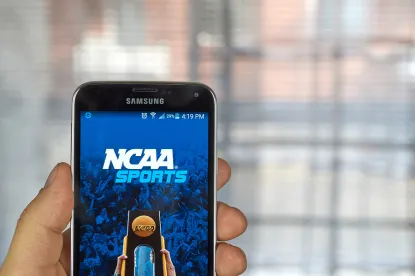While the legal focus on college athletics has been on the impending expansion of name, image, and likeness rights for NCAA student athletes, prompted in part by State and Federal legislative proposals, the Supreme Court has shifted that focus to the courts after agreeing to intercede and rule on what will prove to be a landmark sports law decision.
The United States Supreme Court granted certiorari and accepted the petition filed by the NCAA to review the decision of the U.S. Court of Appeals for the Ninth Circuit, which affirmed U.S. District Court Judge Claudia Wilken’s decision in Alston v. NCAA. The Ninth Circuit concluded in May that the NCAA violated federal anti-trust laws by illegally limiting the value of athletic scholarships. The NCAA argued that Supreme Court intervention is necessary to correct the Ninth Circuit’s improper application of federal antitrust law. The oral argument, which should take place in March or April of 2021, will review the Ninth Circuit’s decision and in effect determine whether it is legal for the NCAA and its individual school members to limit grants-in-aid to tuition, fees, room, board and books up to the full value and cost of attending the school.
The NCAA has long maintained that anti-trust laws do not prohibit the association and its member schools from maintaining limitations on student-athletes’ ability to be compensated for their athletic performance.
At issue is whether the NCAA’s rules which limit compensation to scholarships is a violation of federal anti-trust law.
While the court has found the NCAA to be in violation of federal anti-trust law, the remedy provided by the Ninth Circuit fell short of what the plaintiffs in Alston v. NCAA sought. The Ninth Circuit authorized unlimited compensation to student-athletes for “educationally related” activities, but it failed to create the open market system which would have allowed high school student-athletes to seek unlimited financial compensation from the “highest bidder” for their services as a collegiate athlete.
According to the remedy imposed by the Ninth Circuit, schools are permitted to offer student-athletes the opportunity to be reimbursed for expenses pertaining to educationally related items such “computers, science equipment, musical instruments and other tangible items not included in the cost of attendance calculation but nonetheless related to the pursuit of academic studies.” Additionally, the Ninth Circuit’s ruling also permits institutions to awards scholarships to student-athletes so that they may complete their undergraduate or graduate degrees after their NCAA eligibility expires.
While some have argued that the NCAA should be pleased with the limited remedy imposed by Judge Wilken and confirmed by the Ninth Circuit,
the NCAA believes that the Supreme Court’s 1984 decision in NCAA v. Board of Regents should be used as the guidepost for its ability to limit compensation to student-athletes.
Although the Ninth Circuit rejected the ideals espoused by the Court as non-binding dicta, the NCAA will argue that Justice John Paul Stevens’s acknowledgment in his majority opinion that “athletes must not be paid” supports the continued Supreme Court “latitude” toward the NCAA’s unique amateurism model.





 />i
/>i

